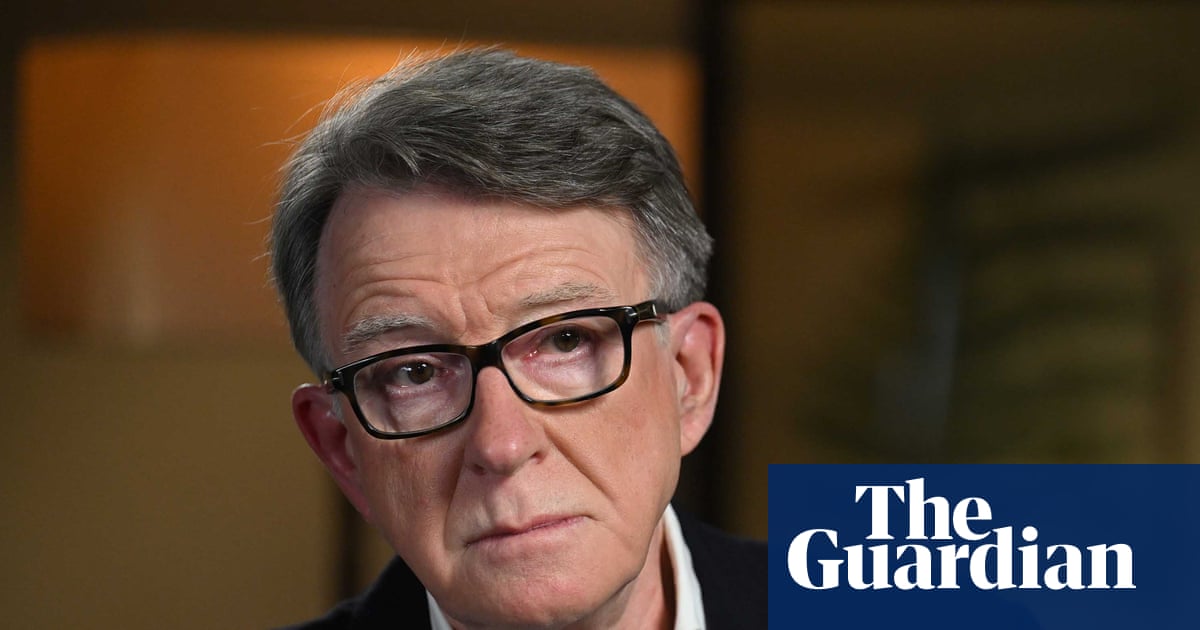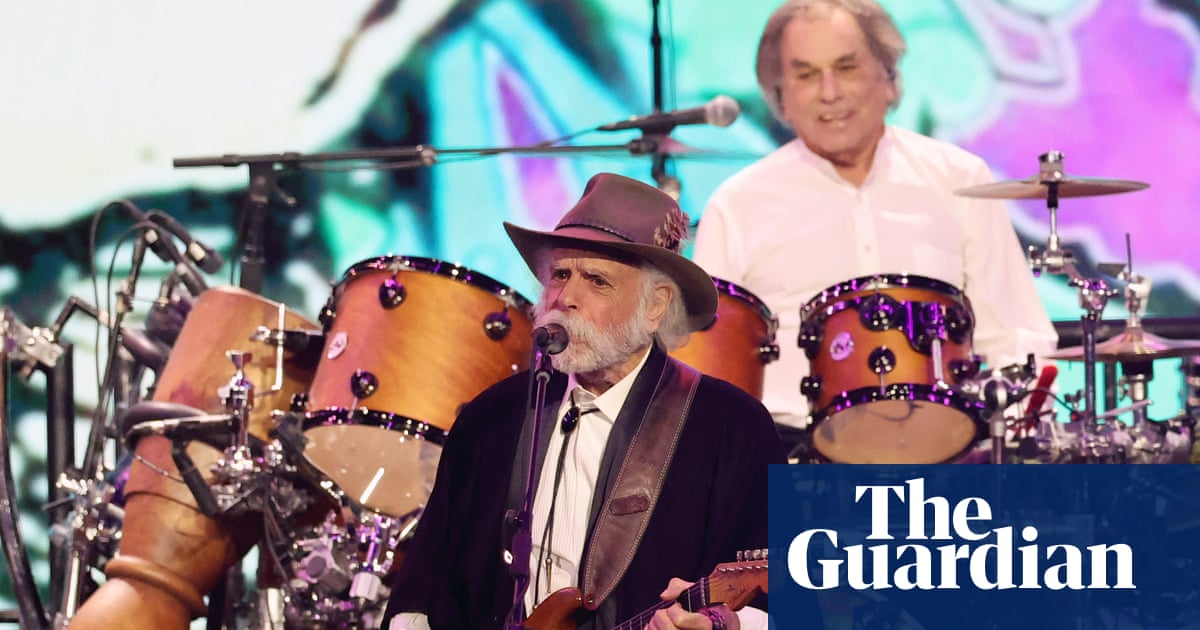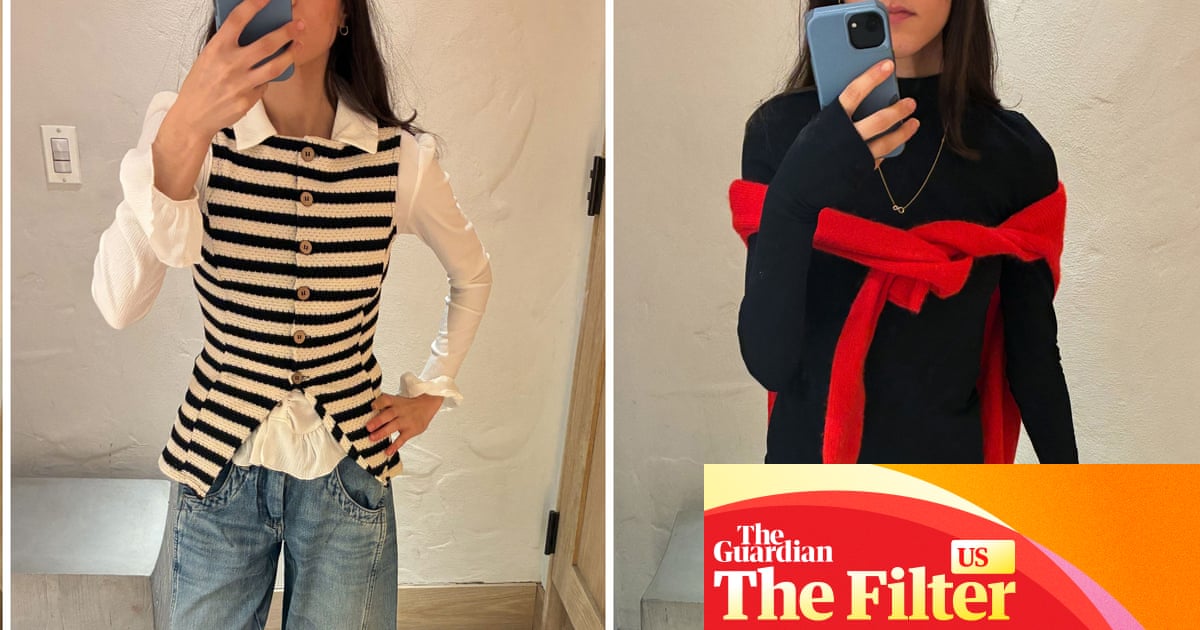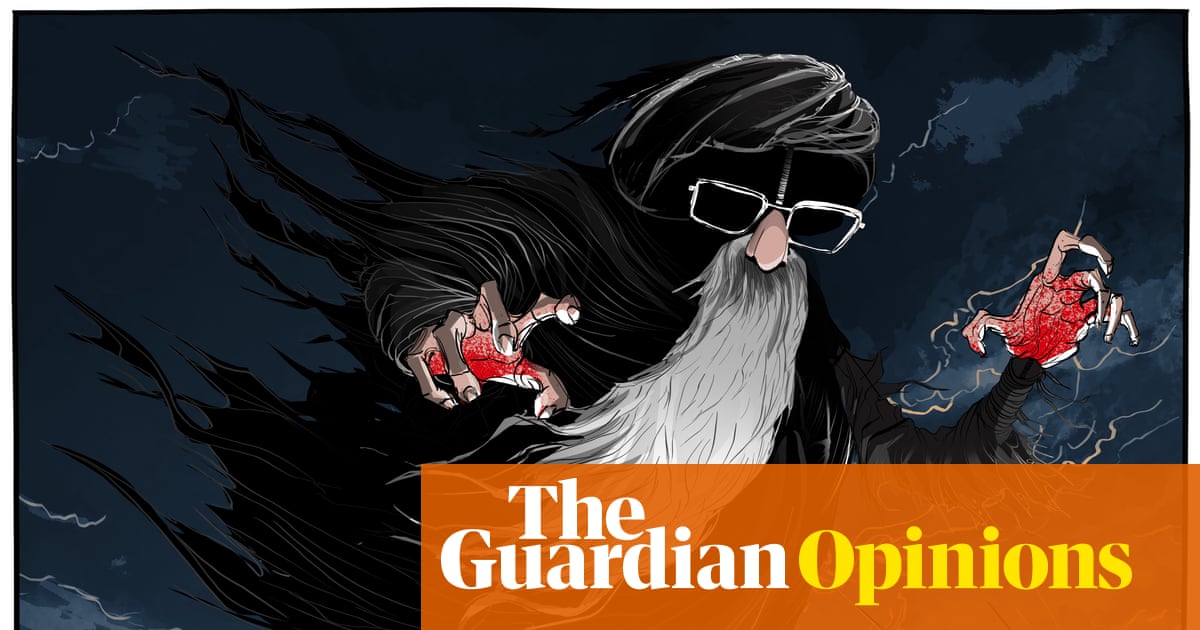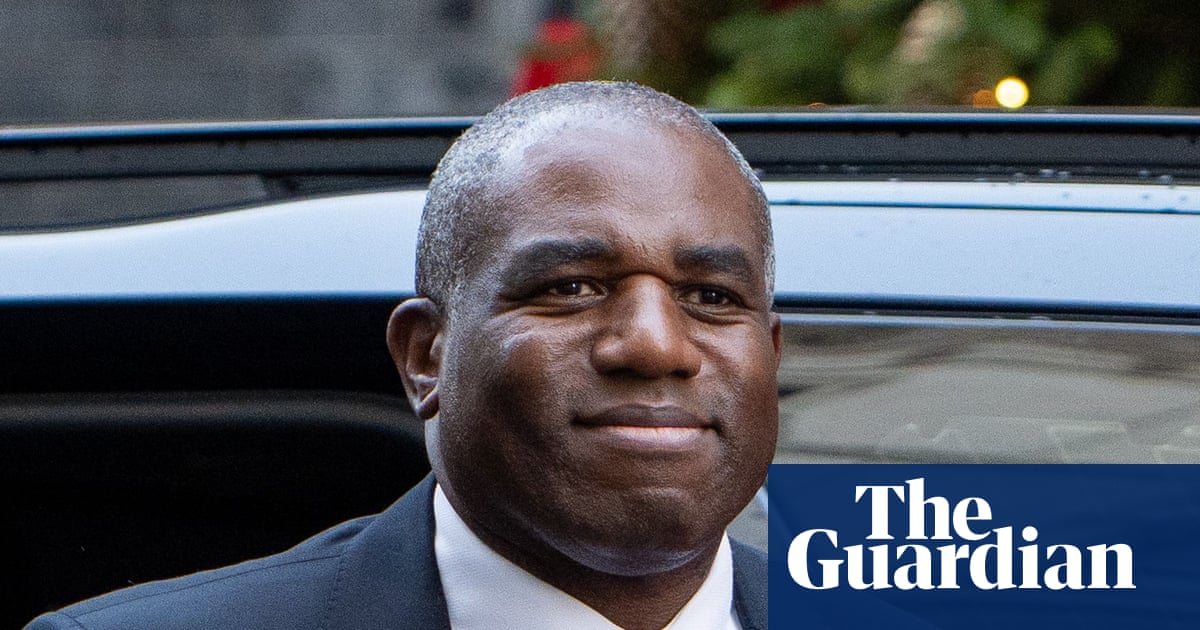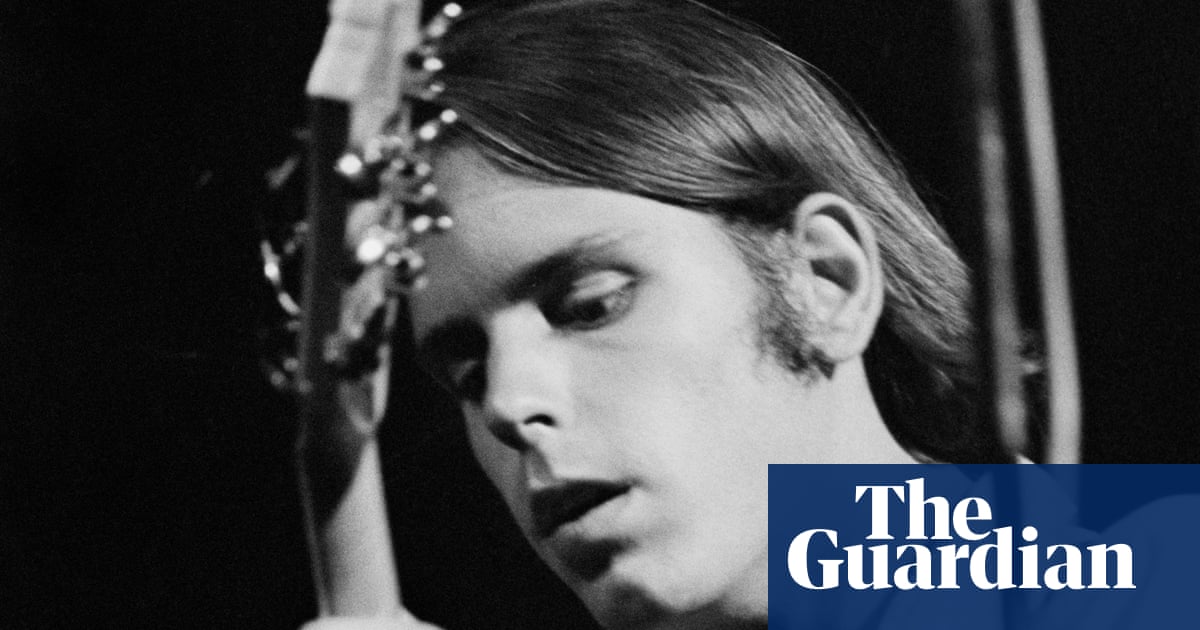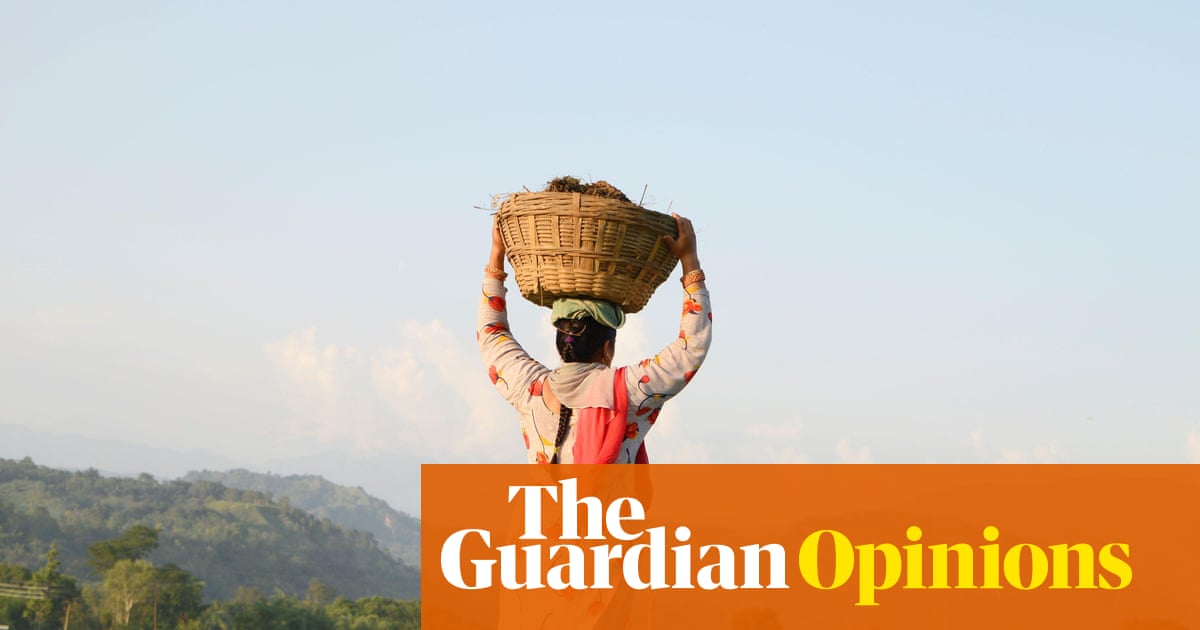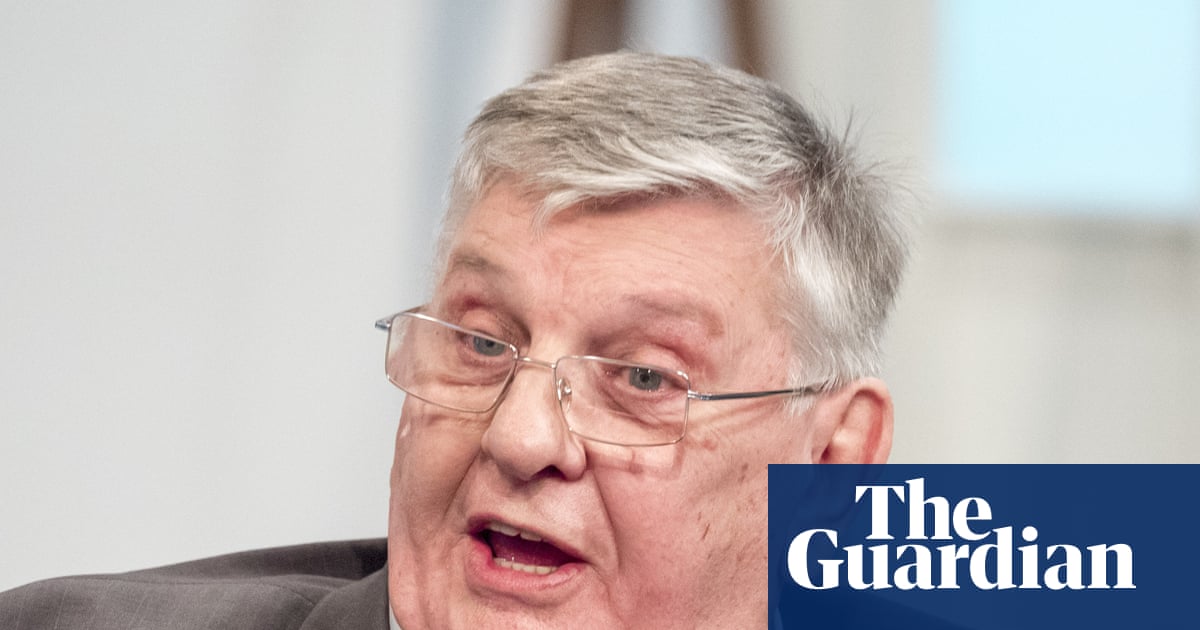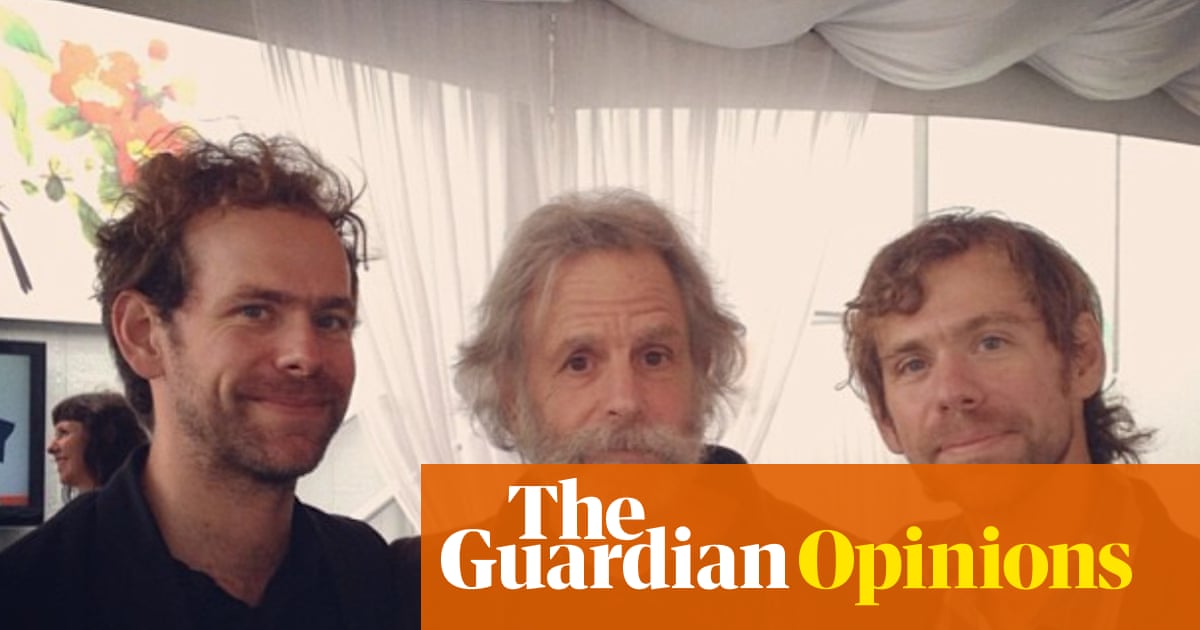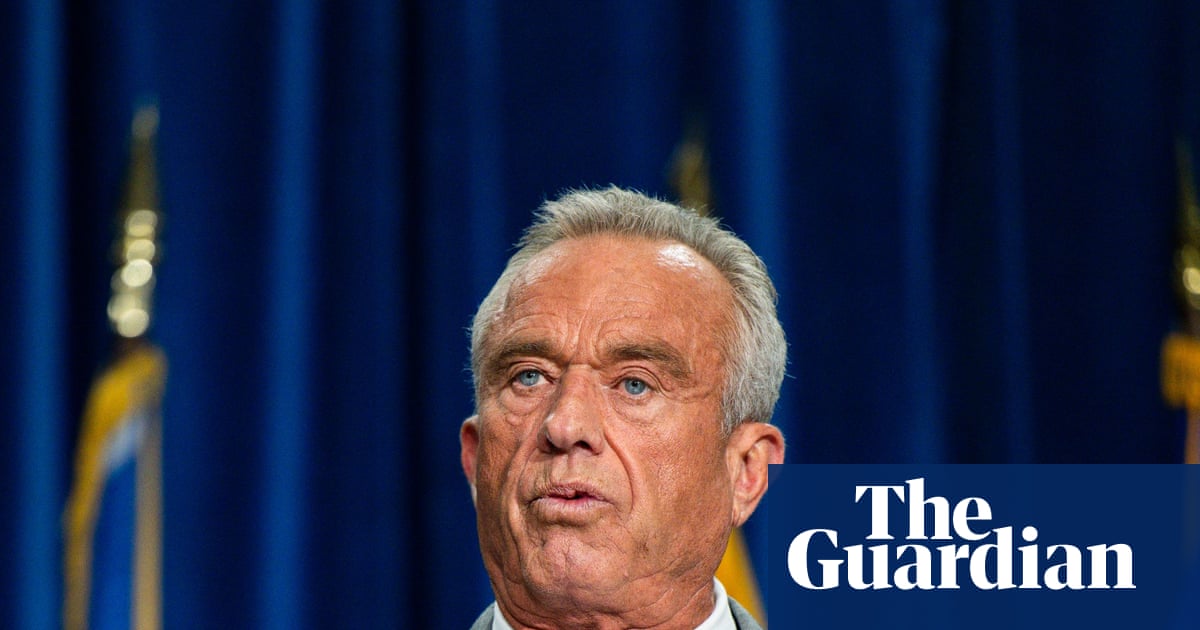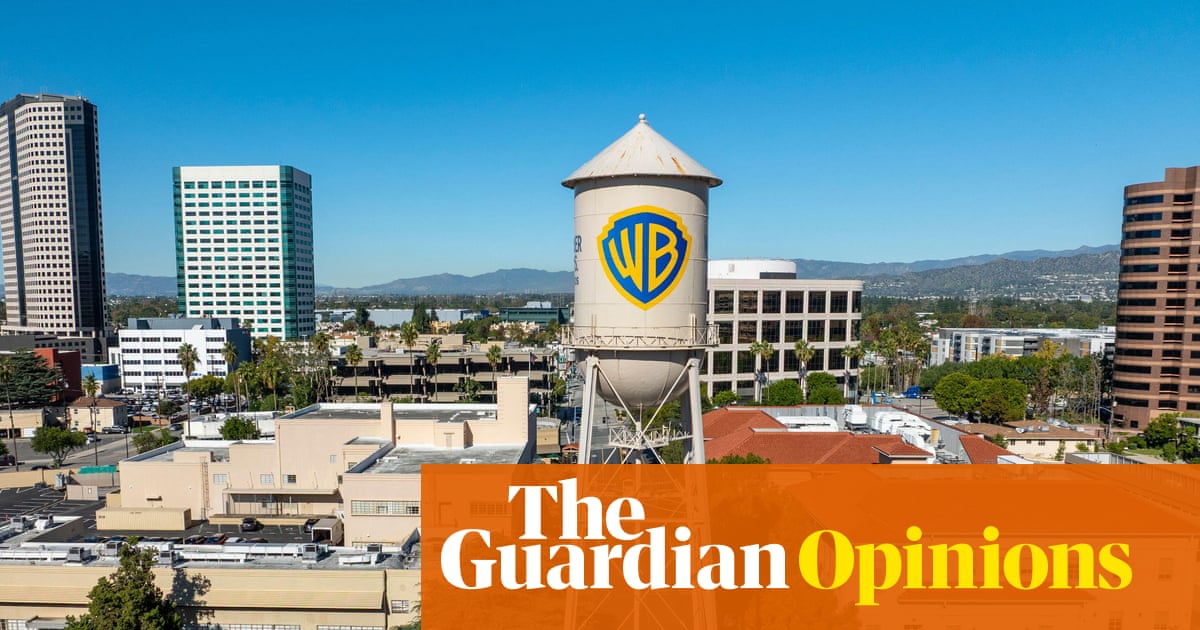I don’t know if I’ve even really celebrated it to be honest, man.” Sitting in a north London bar on a boiling hot evening, resplendent in a matching silk shirt and shorts combo, Mawaan Rizwan is contemplating his life post-Bafta. In May last year, he won best male comedy performance for Juice, his gloriously surrealist BBC series in which he stars as Jamma, a clownish manchild with a bowl cut navigating a chaotic life alongside his dysfunctional family and buttoned-up older boyfriend.
In the end, after a few sips of his negroni, Rizwan – whose CV also includes appearances on Taskmaster, Live at the Apollo and Doctor Who, plus a slew of comedy songs about racism, toxic masculinity and skiing’s lack of socioeconomic diversity – pinpoints one way his life has changed; his therapist upped his fee. Rizwan speculates that it might have happened after his viral acceptance speech, in which the surprised and elated actor recounted a prior session’s focus on the dangers of relying on external forms of validation.
“I’ve spent a lot of my adult life trying to prove myself so that I can be clapped by people, like: ‘Hey, you know what? Maybe you’re not a loser,’” the 34-year-old says with a grin. “I thought winning an award shouldn’t feel good according to everything I’m talking about in therapy … But it feels fantastic.” Shortly after his win, awkward conversations were had in his therapist’s office. “It was the elephant in the room because I reckon he saw the fucking speech,” Rizwan laughs.
Like his onscreen creation, Rizwan has the ability to flit between silliness, sincerity and sadness in the blink of an eye. When I ask why his dad doesn’t star in Juice, like his mum and brother do, he falls silent. Then just when it feels as if he’s on the brink of opening up about their relationship, he switches to joke mode: “I didn’t want to be like Trump, just giving out jobs to my family. Plus, being completely honest, my dad’s CV wasn’t good enough.” Today Rizwan’s energy is also spiked by tiredness; he arrived 10 minutes late for the interview, having just finished the edit on Juice series two, and seems ready to collapse. “This show is a lot, man,” he sighs. “I care about it so deeply. But the downside to that is I don’t have a life.”
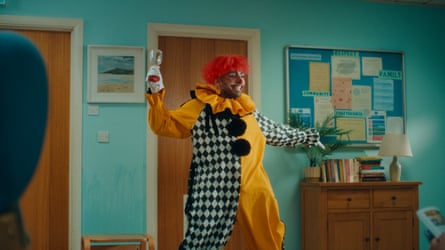
Thankfully, the hard work has paid off. While series one had myriad visual flights of fancy – Jamma tucking into his boyfriend Guy’s arm after it transformed into a cake; an orgasm in a pub toilet punctuated by a jet of glitter – it was still anchored in the real world. Influenced by the playful aesthetics of directors such as Eternal Sunshine of the Spotless Mind’s Michel Gondry and Sorry to Bother You’s Boots Riley, the more supernatural series two takes place in a miniature Juice Town. It’s a world of tactile sponge-like fantasias, intricate house interiors made entirely of cardboard, and sperm-soaked sofas mistaken for modern art. Its gothic, mist-strewn streets are haunted by a mysterious mystic-slash-vape salesman (played by Kevin Eldon) who trades souls, while an emotional scene involving Jamma’s dad’s journey to the UK is retold using shadow puppets and an egg.
First performed at Edinburgh festival fringe as a frenetic one-man show more than a decade ago, it took a while to convince people that Juice could work on television. “There’s a certain way of making British comedy, and if you’re trying to make a show that’s not [like something else] on TV already, that’s a huge risk,” Rizwan says. That risk was heightened by a TV industry contending with financial and political pressures. “I think people are scared,” he says. “Politically, we’re in a very tumultuous time. And that’s the time when art needs to be the most daring, the most honest, the most bold. But on a systemic level and on a commercial level, it’s also a time of austerity, where money tightens, so we often get this paradox: people need to make art that’s more honest, but commissioners want to make stuff that’s a surefire hit. It’s just a hard time for people who want to challenge expectations because everything is a fight.”
Ultimately, he’s aware that not everyone will like Juice and its glorious phantasmagoria and oddball in-jokes (Jamma and his best friend, Winnie, can often be found “smoking” Chipsticks, for example). “If this is not your show, cool, don’t watch it,” Rizwan says. “But if this is your show, the idea is that you become obsessed with it, because it’s a squidgy, almost edible world that feels tangible and sensory.”
Despite the familial cast list – Jamma’s flighty artist brother Isaac is played by Rizwan’s real-life younger brother Nabhaan, who has also starred in Netflix’s Kaos and the crime drama Informer; his mother, Shahnaz, stars as frustrated matriarch Farida – Rizwan is at pains to point out that Juice’s narrative arc of self-acceptance isn’t completely autobiographical. “I know monetising our trauma is the ‘in’ thing in our culture, but sometimes it’s not always helpful,” he laughs. “I wanted Juice to feel truthful and personal, but I wanted it to just fly into avenues that are beyond my limited life experience.”
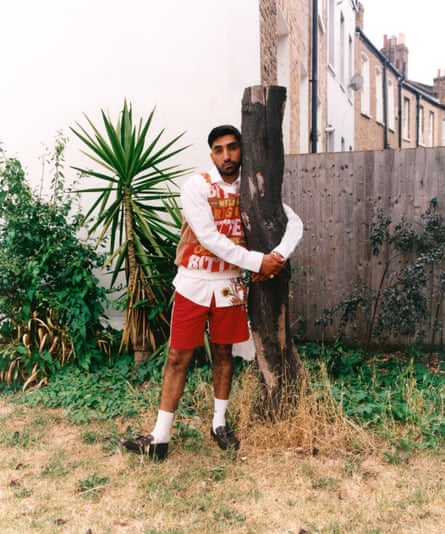
There are definite connections, however, not least the fact that series two finds Jamma becoming a professional clown. When Rizwan was 23, he enrolled at a clown school just outside Paris for a month (it was all he could afford). It changed his life. “We would learn about how everyone in the circus has a skill – there’s a fire-breather, there’s a contortionist – but the clown has no skill whatsoever but his stupidity,” he says. “They’re so lovable but so tragic, and that’s an interesting character trait. Jamma has so many of those qualities.” Rizwan is reckoning with his frequent impulse to “use comedy as a way to get love, make people laugh” by making himself “the butt of the joke. There comes a point in your life when maybe that doesn’t serve you, but you still do it because it’s a habit.”
Born in Pakistan, Rizwan, like Jamma, moved to the UK as a child with his mum (“a powerhouse who never takes no for an answer”). While the family initially struggled – “Mum had a really tricky decade of migration battles and economic struggles,” is how Rizwan puts it – their home was a hub of imagination and creativity. They were often in their own bubble, a world that had its own sayings, including one that would influence the title of Rizwan’s show. “My mum used this phrase: ‘When life gives you mangoes, make mango juice,’” he smiles. “She genuinely thought that was the phrase. So I thought that, too. When the Lemonade album came out, I assumed Beyoncé had got it wrong.”
As a teenager, Rizwan made comedy home videos, which he’d upload to YouTube. He soon noticed that the videos that co-starred his mum, a former child actor in Pakistan, would get the most views. Eventually, Rizwan received a call from a Bollywood producer asking to speak to her. “So, weirdly, she came full circle and she got to act again.”
While his mum was continuing with her acting dream, Rizwan eschewed university in favour of working and going to an arts college. It was during a trip to the Edinburgh fringe that he realised alternative comedy was his calling. “It opens your eyes,” he says of the festival. “I did Edinburgh fringe eight years in a row, in every kind of dingy venue you can think of: corridors, buses, toilets, on a dancefloor shouting over the Vengaboys. It taught me how to play to any kind of audience.” He mentions one punter who threw a Subway sandwich at him: “It was 10pm – what were they even doing having dinner that late?” The early standup version of Juice would often find Rizwan reflecting on his long and winding journey to success (one of his first acting roles involved him dressed as SpongeBob, handing out flyers at a shopping centre), while comparing it to his family’s, particularly his mum’s, almost accidental career ascension.
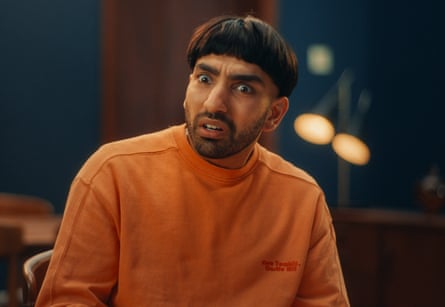
As he climbed the standup ranks, when he was 24, Rizwan presented a documentary for the BBC called How Gay Is Pakistan? in which he explored queer life in his birth country. “I was trying to process a lot at that point,” he says. “But also a part of me was just trying to get it out of the way. The two most obvious things in terms of identity the industry kept telling me about were my queerness and my Pakistaniness. So it was a way of doing something that was super brash and bold and saying: ‘Well, there you go’. Also it was me trying to understand a part of the world and a part of my history that I felt I wasn’t given access to.” He pauses. “And I thought: Well, let’s do that on taxpayers’ money!” He recognises it was helpful to a lot of people, but says he won’t go back to documentaries: “I definitely enjoy the nuances and subtleties I’m able to have in scripts, over a documentary that sometimes feels heavy-handed.”
Juice is full of big themes such as identity, class and social mobility, but its presentation keeps things light, smuggling in topics such as abandonment via a plotline involving a parent rental site called DaddyDays4LonelyGays.com (sadly not real). Every moment of pathos is spiked by a visual gag or a surreal tangent, which makes the whole thing more moving. “Juice was the first show where I combined the clowning and the physicality and the dance and the songs and the singing and the vulnerable stories and the confessional stuff,” Rizwan says. “It somehow all just worked.”
The use of the past tense, plus series two’s neatly wrapped final episode, leads to an obvious final question: will there be a Juice series three? Rizwan sighs. He says he’s keen to focus on music next, and not just comedy songs but something more serious. Besides, he’s too tired to think about the future and would rather sit in the moment for a bit. “It was a fucking long journey, man,” he says of his career, cocktail now drained. “I took the scenic route and it’s made me a better artist for it.”
Season two of Juice starts on 18 September on BBC iPlayer and BBC Three.

 3 months ago
84
3 months ago
84


